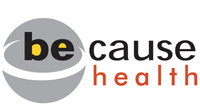SESSION A: TWO BIRDS, ONE STONE
- Organisers: International Centre for Reproductive Health (ICRH), Plan International Belgium, Sensoa, VVOB
- Language of the session: English (no translation)
- Moderator: Sietske Steneker, UNFPA
How can comprehensive sexuality education and programmes addressing school-related gender-based violence contribute to better sexual and reproductive health and education outcomes? Lessons for policy, practice and partnerships
A quarter of the world’s population is aged between 10 and 24, which amounts to approximately 1.8 billion young people. Never before in history have so many young people been on the verge of starting, or have recently started, their sexual and reproductive lives. International human rights and international, regional and national policy documents lay down the obligations of governments to promote and protect the sexual and reproductive health and rights (SRHR) of young people. However, the SRHR of adolescents (10-19) are easily overlooked, as numerous statistics and stories about teen pregnancy, the spread of HIV and other sexually transmitted diseases, and sexual and gender-based violence against and among adolescents illustrate.
Education is considered a prime site for addressing (barriers to) adolescent SRHR. Schools, specifically, are seen as vital places for equipping young people with the knowledge, skills, attitudes and values they need to determine and enjoy their sexuality – physically and emotionally, individually and in relationships. Internationally, the issue has gained considerable political momentum. UNESCO, for instance, has updated its guidelines on comprehensive sexuality education (CSE). Evidence has shown that comprehensive sexuality education that is age-appropriate, gender-sensitive and life skills-based, can provide young people with the knowledge, skills and efficacy to make informed decisions about their sexuality and lifestyle.
At the same time, schools – and indeed the education system at large – mirror much of what goes on in the outside world. As a result, schools are not always safe and healthy spaces. Though specific data are limited, UNGEI and UNESCO have expressed concern that exposure to sexual and gender-based violence is common in and around school settings across the globe. Many school leaders and teachers feel uncomfortable and avoid discussing sensitive topics such as sexuality and gender relationships, especially when the existing curriculum does not invite them to take on the issues at hand. Moreover, initial training and continuous professional development often leave educators unprepared for strengthening skills that are crucial to youth empowerment. Investing in quality education is imperative for schools to deliver on the promise they hold for addressing (barriers to) adolescent SRHR.
Against this backdrop, the panel will focus on the following central question:
How can comprehensive sexuality education and programmes addressing school-related gender-based violence contribute to better sexual and reproductive health and education outcomes? – Lessons for policy, practice and partnerships.
SESSION PROGRAMME:
- Introduction
Interactive training session on the Sensoa Flag System by Karen De Wilde
- Panel discussion
Yona Nestel will focus on the policy level, drawing on her experience as a member of UNGEI / UNESCO’s global working group on School Related Gender Based Violence and the UNGEI steering committee and her work with Ministries of Education and government stakeholders to influence education policies and strategies in developing contexts.
Hans De Greve will focus on linking policy and practice, drawing on his experience as education advisor in the VVOB Suriname iGROW project – a collaborative effort of education, health and youth organizations. The project pilots a whole school approach to address adolescent SRHR and gender-based violence in lower secondary vocation education.
Johanna Herat will focus on a number of CSE case studies where the UNESCO Guidelines on Sexuality Education have been guiding, highlighting a number of good practices of CSE programmes, the lessons learned and to what extent the updated UNESCO guidelines will respond to ASRHR needs.
Anna Ninsiima will focus on the barriers of the implementation of comprehensive sexuality education in a complex setting as Uganda. She will speak about the experience of implementing a CSE curriculum with focus on gender equality in primary schools in rural Uganda.
Q&A
